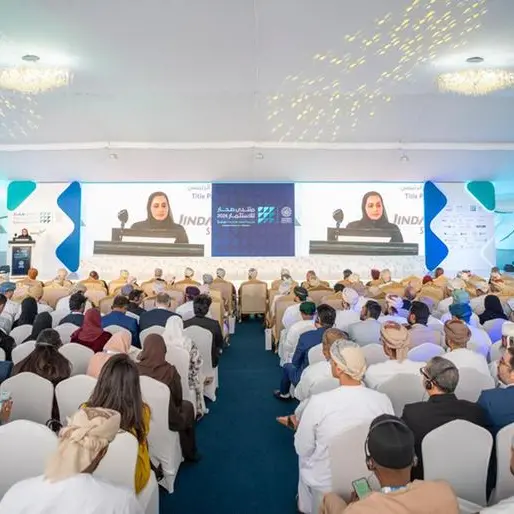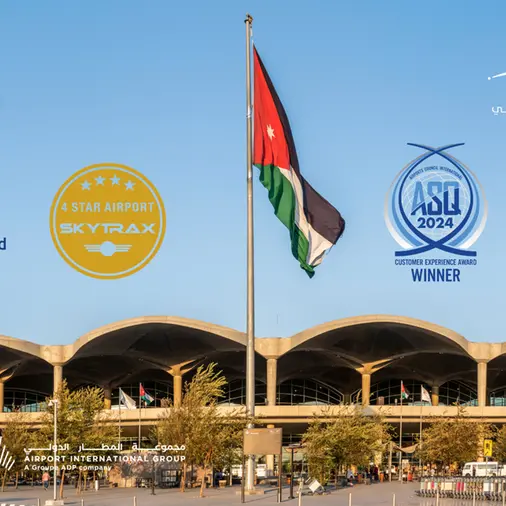The MENA Fintech Association (MFTA), the leading voice of the Fintech community in the region, has launched the Sustainable Fintech Alliance, with the mission of helping its members create positive impacts in the face of the increasingly urgent environmental and social challenges of today.
The world is at a critical juncture and the MENA region is set to take the centre stage in the quest for resolving the most defining issue of our time, climate change. After the recent conclusion of COP26 in Glasgow, the torch is in fact being passed to Egypt and the UAE as hosts of COP27 and COP28 respectively.
Sustainability is broader than climate change. It is about enabling a society where future generations can thrive, and everyone needs to contribute their fair share.
By joining the Alliance, members commit to gradually implementing credible and transparent sustainability strategies within their organisations, which contribute towards the United Nations’ Sustainable Development Goals (SDGs), and also the Net Zero pledges made by several countries across the region.
Companies are at different levels of maturity when it comes to embed sustainability within their organisations, and Fintechs are no different. This is why education and awareness will be central to achieving the Alliance’s mission. The Sustainable Fintech Alliance is therefore committing to a phased, three steps approach:
Step 1 → Education
As a first, critical step in this journey, MFTA is working with institutional and academic partners to design a robust educational programme that will equip Fintechs with the knowledge base they need to develop solid sustainability strategies that are right for them. This will be based on international best practice and will be delivered with support from leading experts, as well as a knowledge exchange platform between members.
Step 2 → Implementation
Having obtained the right knowledge and learnt about leading global standards, Fintechs will be able to set credible sustainability and climate-related goals that align to their company’s values and customers’ expectations, while making a positive contribution towards the achievement of the SDGs. At this stage, members can publicly disclose their strategy and commitments.
Step 3 → Realisation
Transparency is critical in order to gain people’s trust. So once the strategy and commitments have been communicated, these will need to be consistently followed up and measured. At this stage, members will feel confident to track the progress made and, through the Alliance, they will have continuous access to all the help and support they need.
MFTA passionately believes that the Fintech community has a critical role to play in finding solutions for the most urgent issues we face as a society. This is why, in addition to helping members embrace sustainability within their organisations, the Alliance will also enable collaboration between the Fintech community and policymakers within the financial sector and beyond, with the aim of putting technology at the service of purposeful change.
Launching the initiative, Nameer Khan, Chairman and Founding Board Member of MFTA said: “We are extremely excited to be launching the Sustainable Fintech Alliance as part of MFTA’s core initiatives. We see momentum picking up in the region and, as an Association that brings together stakeholders from across the region, with excellent relationships with central banks and regulators, MFTA has a key role in supporting the transition towards a more sustainable society. We want to help Fintechs embrace sustainability as part of their organizations’ culture and values, and ensure they have access to high quality knowledge and resources. Problem-solving is built into the DNA of Fintechs, and we believe they are also uniquely positioned to think creatively and collaboratively to bring sustainability front and centre in consumers’ lives. I am personally invested in harnessing technology and innovation to reimagine financial services from the lens of sustainability, and I am committed to making this a core priority of MFTA’s engagement with Fintechs and regulators going forward”.
Christian Kunz, Head of Group Strategy and Innovation at DIFC Authority, and Chair of the Dubai Sustainable Finance Working Group said: “We are proud to be member of this founding group and a part of the Sustainable Fintech Alliance, aiming to create a positive impact with the help of the different partners, beginning with education. In line with the UAE's recently announced strategic initiative to achieve net zero emission production by 2050, we recognise the importance of sustainability and are committed to being at the forefront of important issues such as this in the region. Today, the market capitalisation of ESG-inspired Sukuk and bonds is growing at a high pace in DIFC, now making up over 11.7% of the total outstanding bonds, in excess of USD12.15 billion. At DIFC, we are continuing our efforts to cement our position as the leading innovation ecosystem in the UAE, unlocking future growth through the Future of Finance and Future Economies.”
Mercedes Vela Monserrate Head of Sustainable Finance at ADGM: “ADGM is committed to working in line with the UAE’s vision to achieving its Net Zero by 2050 strategic Initiative. The Sustainable Fintech Alliance serves as a significant contributor to the progression of innovative sustainable solutions to unlock and catalyse multiple sources of financing in alignment with ADGM’s FinTech and Sustainable Finance Initiatives. It is with pride that ADGM ascribes to the Sustainable Fintech Alliance as a founding member and we look forward to supporting the collective effort towards a sustainable future for tomorrow’s generation.”
Commenting on the initiative, Kareem Refaay, Managing Director, The London Institute of Banking & Finance MENA said: “At LIBF, we are the lifelong partner in financial education, and as such, designing and developing a programme centred around sustainability in finance and fintech is at the core of LIBF. With our research centres in both niches, our expert faculty and industry practitioners, it is our pleasure to be part of such an initiative in partnership with stakeholders. The launch of the sustainable fintech alliance and financial education programme accredited by LIBF, will be a driving change in the MENA region.”
-Ends-
How to join
The Sustainable Fintech Alliance is open to all Fintechs in the MENA region who wish to commit to a brighter future. To join the Alliance, just send an e-mail to: hello@mena-fintech.org
Sustainable Fintech Alliance founding members
Checkout.com, YAP, Mastercard, M2P Solutions, Marshal, Codebase Technologies, BPC , Taptap Send, GPS
In collaboration with:
Abu Dhabi Global Market (ADGM), Dubai International Financial Centre (DIFC), The London Institute of Banking and Finance MENA (LIBF)
© Press Release 2022
Disclaimer: The contents of this press release was provided from an external third party provider. This website is not responsible for, and does not control, such external content. This content is provided on an “as is” and “as available” basis and has not been edited in any way. Neither this website nor our affiliates guarantee the accuracy of or endorse the views or opinions expressed in this press release.
The press release is provided for informational purposes only. The content does not provide tax, legal or investment advice or opinion regarding the suitability, value or profitability of any particular security, portfolio or investment strategy. Neither this website nor our affiliates shall be liable for any errors or inaccuracies in the content, or for any actions taken by you in reliance thereon. You expressly agree that your use of the information within this article is at your sole risk.
To the fullest extent permitted by applicable law, this website, its parent company, its subsidiaries, its affiliates and the respective shareholders, directors, officers, employees, agents, advertisers, content providers and licensors will not be liable (jointly or severally) to you for any direct, indirect, consequential, special, incidental, punitive or exemplary damages, including without limitation, lost profits, lost savings and lost revenues, whether in negligence, tort, contract or any other theory of liability, even if the parties have been advised of the possibility or could have foreseen any such damages.



















